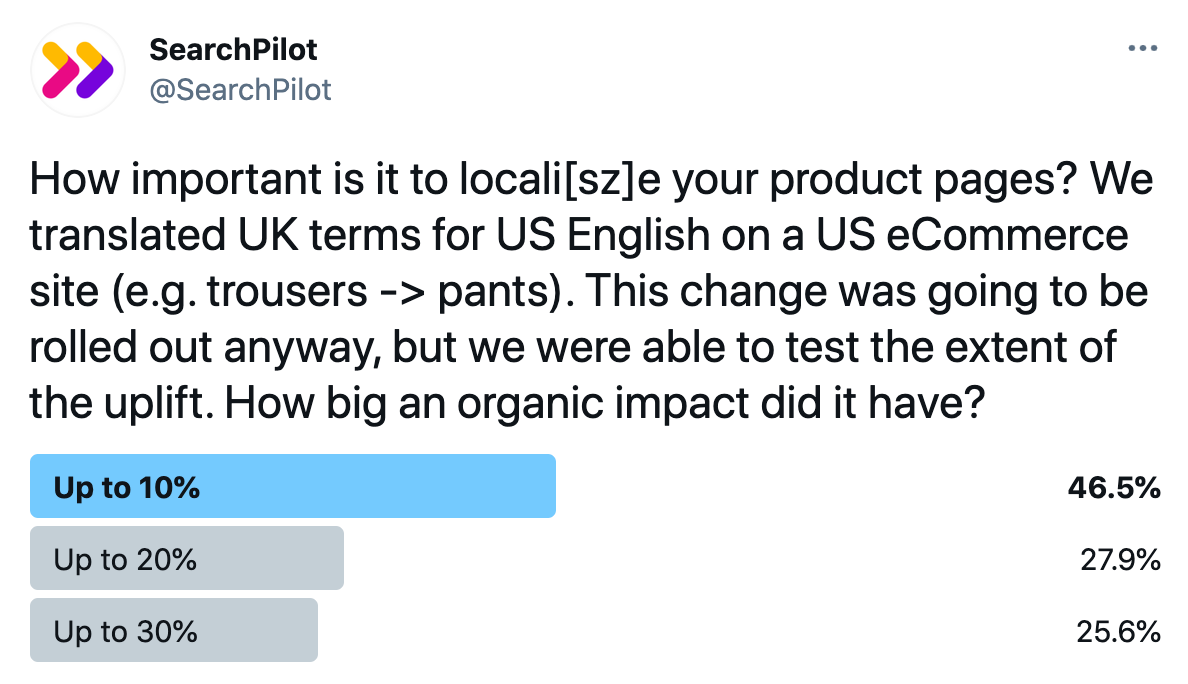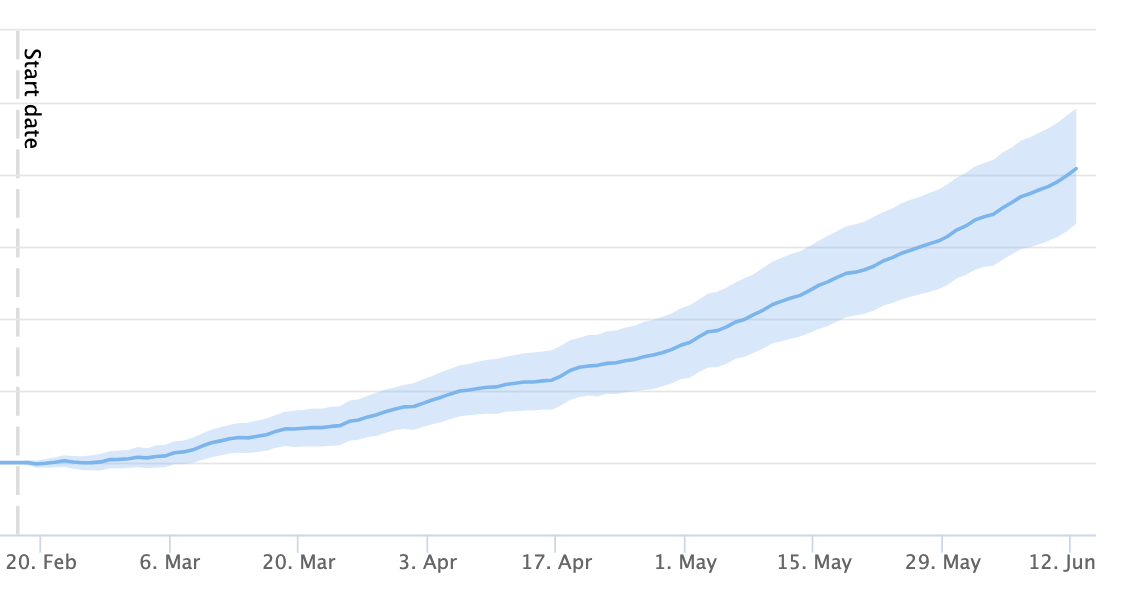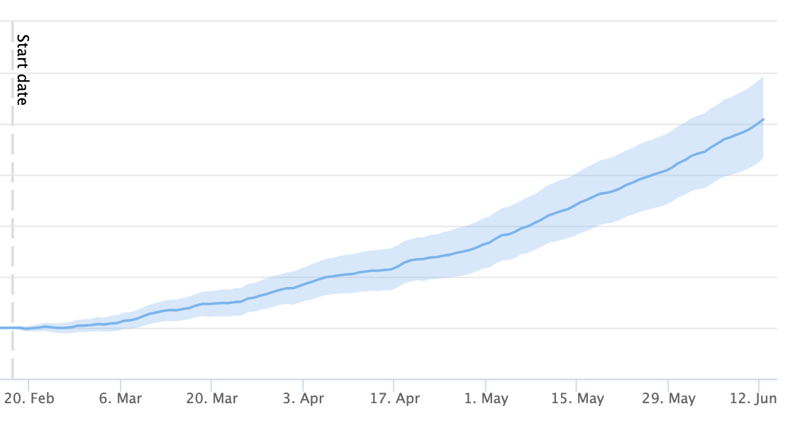Start here: how our SEO split tests work
If you aren't familiar with the fundamentals of how we run controlled SEO experiments that form the basis of all our case studies, then you might find it useful to start by reading the explanation at the end of this article before digesting the details of the case study below. If you'd like to get a new case study by email every two weeks, just enter your email address here.
This week on Twitter, we asked our followers what they thought happened to organic traffic when we localized a UK company’s ecommerce product content for the US market.

Nearly half of you think the extent of the change’s impact was up to 10% while the other half was almost split between the impact being up to 20% or 30%. Read on to find out how much of an impact this change had on organic traffic.
The Case Study
Large businesses tend to offer their products or content across different markets. Doing so often requires localizing content to better reach the target market’s audience.
Translation is one of the foundational approaches for localizing content. However, when it comes to localizing content from the UK market to the US market, where English is the primarily language in both areas, translation doesn’t quite apply. But what about accounting for the other intricacies between how English is used in the UK versus the US? Well, that’s exactly what we decided to test on an ecommerce customer’s product pages.
In this case study, we tested localizing ecommerce product content from the UK market for the US market. This involved swapping UK clothing terms for their respective US synonyms, wherever they appeared in the content of the page. For example, this included switching the UK word “trousers” to the US term “pants”, or the UK pattern name “tartan” to the US name “plaid”. Additional examples are listed below, but note that it is not an exhaustive list of the changes. This change is obviously better for users, but we were interested to run it as a test to quantify the importance of the change for organic search.
Example control keywords:
- Trousers
- Tartan
- Court shoes
- Trainers
- Playsuit
Example variant keywords:
- Pants
- Plaid
- Pumps
- Sneakers
- Romper
We obviously hypothesized that localizing clothing keywords for the US market may improve rankings for these pages and potentially lead to increased organic traffic. It would also lead to a better user experience for American website users, who may otherwise be put off by British terminology.
Here are the results of this test:

Localizing the product page content for the US market resulted in a statistically significant and positive impact to organic traffic with an approximate uplift of 24%.
We knew it ought to be beneficial, but this is a substantial impact, and a bigger one than most people expected. It really makes the case for business processes to ensure that future products rolled out in the US are correctly localized from day one.
How our SEO split tests work
The most important thing to know is that our case studies are based on controlled experiments with control and variant pages:
- By detecting changes in performance of the variant pages compared to the control, we know that the measured effect was not caused by seasonality, sitewide changes, Google algorithm updates, competitor changes, or any other external impact.
- The statistical analysis compares the actual outcome to a forecast, and comes with a confidence interval so we know how certain we are the effect is real.
- We measure the impact on organic traffic in order to capture changes to rankings and/or changes to clickthrough rate (more here).
Read more about how SEO testing works or get a demo of the SearchPilot platform.
